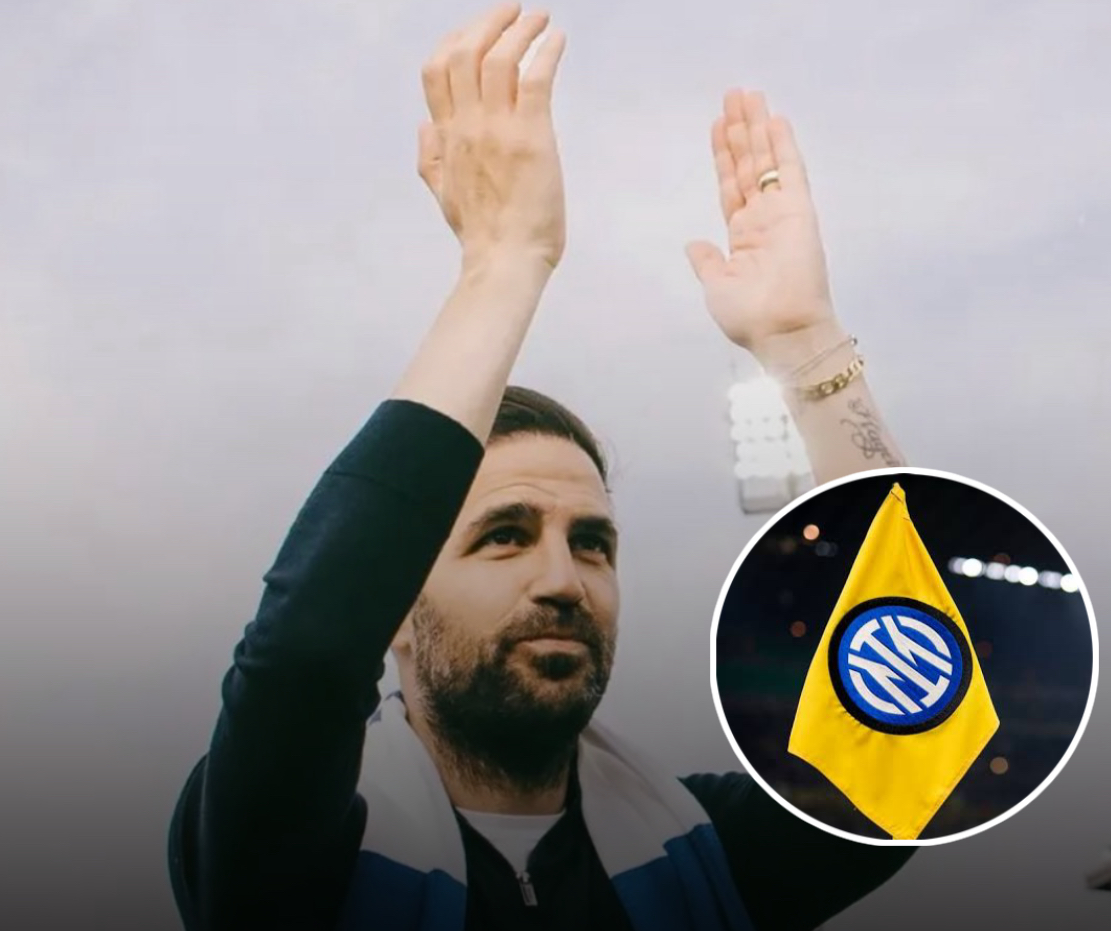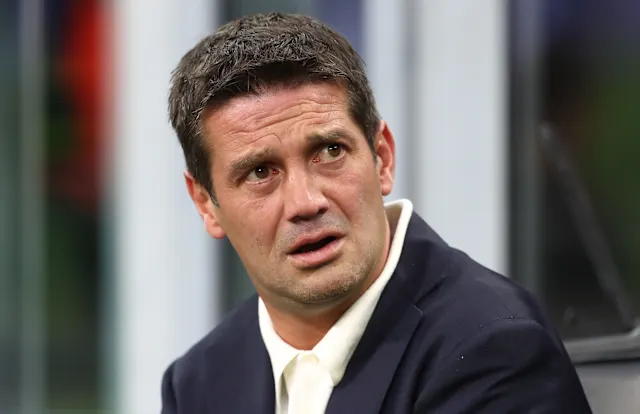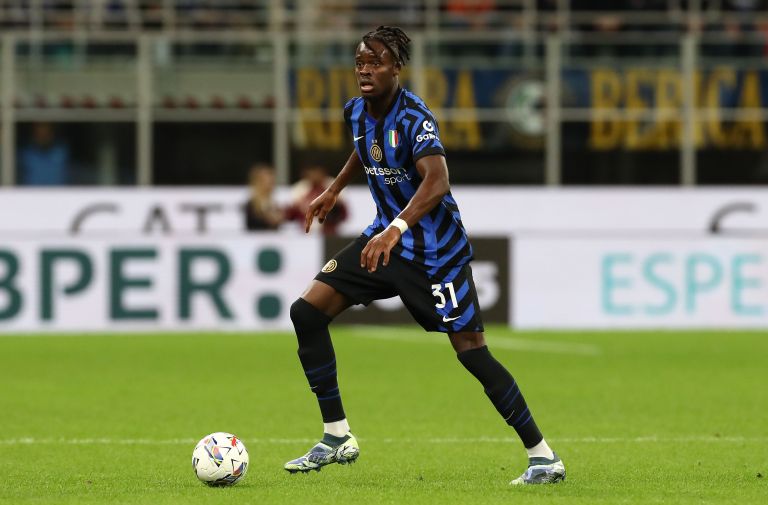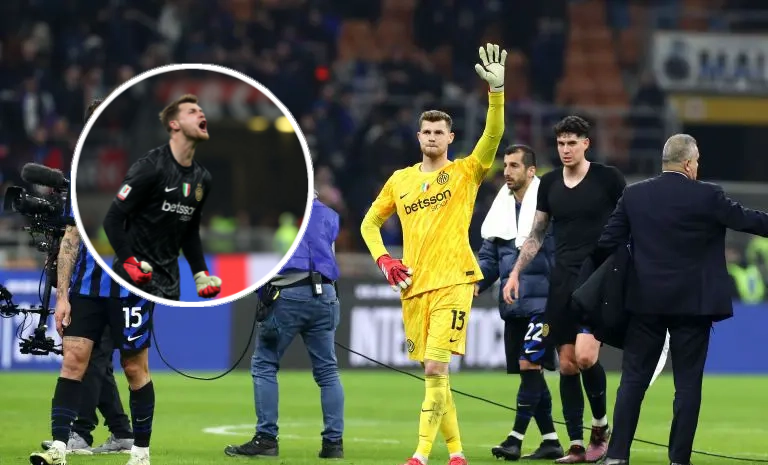CESC FABREGAS VUOLE INSERIRE UNA CLAUSOLA INTELLIGENTE NEL CONTRATTO DELL’INTER PRIMA DI FIRMARLA, HA TUTTE LE CARTE IN MANO
In a development that has both intrigued and puzzled the footballing world, Cesc Fàbregas, the former Arsenal, Barcelona, and Chelsea midfielder turned coach, is reportedly in advanced talks to take on a role at Inter Milan—but not without demanding a clever and unconventional clause in his contract. While details are being closely guarded, several insiders have confirmed that Fàbregas has made it clear: unless the clause is included, there will be no deal.
The football world is buzzing. Why would a coaching appointment—albeit of a legendary midfielder—be so contentious? Why is Fàbregas so adamant about inserting a unique provision into his Inter deal? And most importantly, what does this mean for Inter Milan, a club in flux after a turbulent end to their 2024–25 campaign?
Let’s take a deep dive into the potential appointment of Fàbregas, the strategic clause he’s demanding, and why this moment could mark a turning point not just for Inter, but for the trajectory of Fàbregas’s managerial career.
FROM MIDFIELD MAESTRO TO TACTICAL THINKER
Cesc Fàbregas has always been ahead of the curve. As a teenager breaking into Arsenal’s first team, he was already dictating the tempo of matches with a footballing brain far beyond his years. His career saw him lift trophies in England and Spain, play under legendary managers like Arsène Wenger, Pep Guardiola, and José Mourinho, and become one of the most decorated midfielders of his generation.
But Fàbregas’s post-playing career has been equally calculated. After stints at AS Monaco and Como as a player, he smoothly transitioned into a coaching role at Como 1907, quickly gaining a reputation as a forward-thinking, analytically savvy manager. Under his leadership, Como achieved promotion to Serie A—a monumental feat considering the club’s modest resources.
His vision, player management, and ability to outsmart more experienced coaches have made him a rising star in the managerial world. So when Inter Milan started exploring options for a coaching reshuffle following a disappointing end to their season, it was only natural that Fàbregas’s name rose to the top of the shortlist.
INTER MILAN: A CLUB IN TRANSITION
The timing of Inter’s interest in Fàbregas is telling. The club recently suffered an embarrassing Champions League exit at the hands of PSG and has seen tensions rise internally between players, management, and fans. Reports of a fractured dressing room, questions around Lautaro Martínez’s captaincy, and uncertainty about CEO Beppe Marotta’s future have only added to the volatility.
In short, Inter are seeking more than just a coach. They want a cultural reset, a manager who can galvanize a tired squad, implement a modern tactical identity, and develop young talent. Fàbregas fits that profile perfectly. He’s respected, tactically astute, and already fluent in Serie A’s demanding tactical ecosystem.
But while Inter may want him badly, it’s Fàbregas who holds all the cards—and he knows it.
THE CLAUSE: WHAT DOES FÀBREGAS WANT?
Multiple sources close to the negotiations have revealed that Fàbregas is requesting a performance-triggered ownership clause—a rarely seen provision at this level. Specifically, the clause would grant Fàbregas a minor equity stake in the club’s sporting operations or future earnings if certain sporting objectives are met under his tenure.
In simpler terms: if Fàbregas meets agreed-upon targets—Champions League qualification, a domestic title, or a certain number of academy players developed—he wants a piece of the pie.
While some insiders say the clause might relate to contractual control over recruitment decisions or technical direction, others believe it could even give him a pathway into upper management, such as a future sporting director role. Either way, it’s clear: Fàbregas is playing chess, not checkers.
WHY THIS IS SMART BUSINESS FROM FÀBREGAS
Fàbregas understands the modern game better than most former players. He has witnessed how unstable managerial tenures can be—even for the most competent tacticians. By embedding a clever clause in his Inter Milan deal, he’s ensuring:
- Long-term security: Even if results dip temporarily, the clause gives him leverage and possibly financial security.
- Strategic influence: Should he achieve success, he can have a say in how the club evolves beyond just the pitch.
- Legacy building: Fàbregas doesn’t want to be a mere manager—he wants to shape the future of football clubs, from philosophy to infrastructure.
This kind of clause is unprecedented in Italian football, and it shows how Fàbregas is aiming to redefine the role of a head coach.
INTER MILAN’S DILEMMA: BACKING A VISION OR MAINTAINING CONTROL?
From Inter’s perspective, Fàbregas’s demand is both enticing and alarming. On the one hand, they could be getting a young visionary with a strong understanding of modern football. On the other, they risk handing over more power than they’re traditionally comfortable with.
Inter’s board is known for being hands-on, especially in terms of recruitment. Sporting director Piero Ausilio and Marotta have typically driven transfer strategy, often with minimal input from managers. Allowing Fàbregas such a clause would be tantamount to restructuring Inter’s power dynamic.
But given their recent failures and the pressure from fans to modernize, they may have no choice. Fàbregas isn’t just another name—they believe he could be their version of Xabi Alonso at Bayer Leverkusen or Julian Nagelsmann during his Hoffenheim breakout.
WHAT DO THE FANS THINK?
Inter fans are split. A large portion is excited by the idea of a progressive young coach who has already shown promise. Social media is filled with glowing tributes to Fàbregas’s time at Como, with many referencing his use of data, positional play, and youth promotion.
However, others are more skeptical. One vocal section of the fanbase believes Inter need a more experienced hand, someone who’s dealt with the pressures of big-club management. Moreover, some ultras view the idea of giving a coach partial ownership or administrative influence as a dangerous precedent.
One fan posted:
“We’re not a startup. This is Inter Milan. We don’t hand out equity like candy. We need results, not experiments.”
Still, excitement is growing. The idea of a Fàbregas-led Inter, playing high-intensity, attacking football, with a clear vision and modern methodology, is tempting.
COULD THIS BE THE FUTURE OF COACHING CONTRACTS?
If Fàbregas pulls this off, it could trigger a paradigm shift in football management. For decades, players have gained more control over their careers through image rights, agent clauses, and wage structures. Coaches, however, have largely remained at the mercy of club boards.
This new model—where a coach receives stake-based incentives—could change everything. It aligns a manager’s success with the club’s growth, incentivizing long-term planning over short-term survival.
Much like how Bill Walsh transformed coaching in the NFL or how Arsène Wenger revolutionized Arsenal by taking control of diet, training, and transfers, Fàbregas may be laying the groundwork for a new generation of football leaders.
HOW CLOSE IS THE DEAL?
Reports from Italy suggest that Inter and Fàbregas are nearing an agreement on salary and duration. The sticking point remains the clause. Some board members are lobbying against it, while others—especially younger executives and those aligned with Inter’s new digital strategy—believe Fàbregas’s vision aligns with the future of the club.
There’s a growing belief that Inter will compromise by offering a performance-linked consultancy role or a guaranteed promotion to a director-level position after two seasons, provided objectives are met.
Fàbregas has remained tight-lipped publicly, but insiders claim he’s “calm and confident” that the club will see things his way. As one close associate put it:
“Cesc knows what he brings to the table. He’s not desperate. If Inter don’t back his vision, others will.”
CONCLUSION: A DEFINING MOMENT FOR INTER AND FÀBREGAS
Whether or not the deal gets signed, the very fact that Cesc Fàbregas is bold enough to demand such a clause speaks volumes about his ambition and strategic thinking. He isn’t satisfied with just being another name on the touchline—he wants to reshape football from within.
For Inter Milan, this is a moment of truth. Will they embrace a modern, risk-taking coach with revolutionary ideas? Or will they retreat into the comfort of traditional structures and risk stagnation?
What’s clear is that Fàbregas holds all the cards. Inter want him. The fans are intrigued. The media is watching. And if the club agrees to his terms, they may not just be signing a manager—but securing the future of their footballing identity.








Post Comment